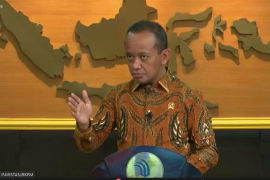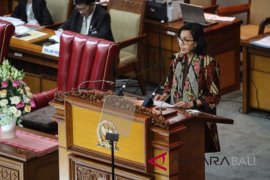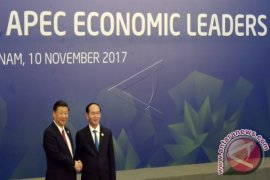Semarang, C Java (Antara Bali) - Indonesia is currently facing tough challenges in the form of poverty and inequality, which hinder the country's economic growth, Finance Minister Sri Mulyani noted.
"The problems that we need to overcome are reducing poverty and economic inequality," she stated while delivering a public lecture at the University of Diponegoro, Thursday.
The minister believed that the design of inclusive economic growth, which has a relatively better quality as well as helps in improving productivity, maintaining competitiveness, keeping institutions clean and effective, and ensuring good governance, would help in addressing such problems.
In particular, Mulyani emphasized that the development of institutions was one of the most difficult tasks to be carried out, as it will not only affect the country greatly but will also improve the quality of organizations at the executive, legislature, judiciary, and private sector levels.
In doing so, she cited the example of the University of Diponegoro that is making efforts to reduce poverty by enrolling 37 percent of the students from poor families.
She remarked that such a contribution was necessary to improve the indicators of Indonesia's economic health, which could easily be monitored by observing the rate of poverty, inequality, and unemployment.
Mulyani explained that Indonesia should not emulate the development model in Latin American countries, such as Brazil and Mexico, which have high economic growth but a wider inequality gap.
"That is the example of how a big economy cannot offer a significant impact to benefit the public," the former managing director and chief operating officer of World Bank remarked.
Since being appointed as finance minister in July 2016, Mulyani has been optimistic that Indonesia's economy would continue to grow along with reducing poverty and inequality.
Moreover, she stated that Indonesia's economy had always shown a five to six percent growth, except during the few years when it bore the impact of the commodity prices as the global oil prices has fallen.
"It occurred in 2009 and 2015 when our economy grew below five percent. However, in 2016, the nation recorded an economic growth of 5.02 percent, and we have forecast it to reach 5.2 percent by the end of 2017," (WDY)









